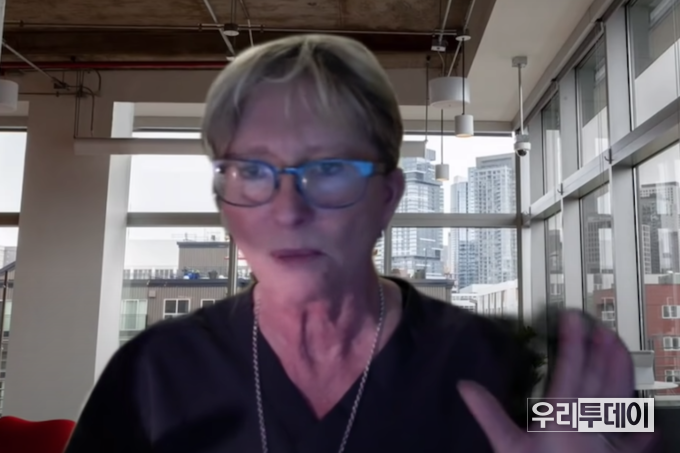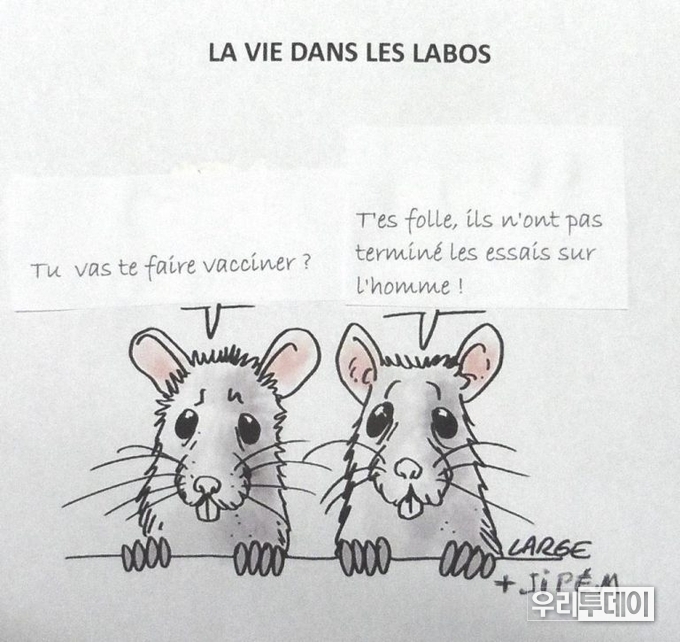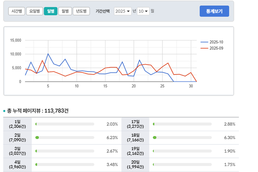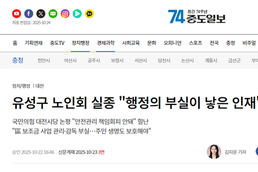우리투데이 차한지 기자 | 코로나 백신은 인류에 치명적 이라고 세계적인 전문가들은 말하고 있습니다. 백신의 안전성 검토후 백신 잡종이 가능한데 지금 코로나 백신은 안전성 검토 없이 인류를 대상으로 백신 접종이라는 명목으로 인류 감축 현상 심각한 부작용이 나타나고 있다.
이는 백신 접종으로 인구감소의 지표라고 말하고 있는 이가 있다.
범 국민 코로나 회복위원회 조수경 위원장이 그 주인공이다.
백신 접종을 강제 하는것은 음모론아닌 현실로 일부 무분별한 국제 단체에서 자행하는 인간 말살정책의 일환으로 인류 감축의 중요한 지표이다 라고 하고 있다.
세계 각국의 백신 접종 찬성자들은 음모론이 아닌 현실로 각국의 지도자들이 동참하고 있는 이상한 현실이며 우리나라도 예외는 아니다 라고 말하고 있다.
조수경 위원장은
백신 접종 반대는 물론 백신에 의한 피해자 구제에 관심을 가져야 한다고 말했다.
전 세계에서 코비드 백산 접종 반대 시위가 있으나 국내 대형언론사 에서는 거의 보도를 하지 않고 있습니다. 라고 말하고 있다.
백신 부작용과 안전성에 대한 뉴욕타임지에 실린 내용을 국민의 알권리 차원에서 인용보도 합니다.
이를 알리는 블로그에서 일부 인용한점 말씀 드립니다. (https://blog.naver.com/sekiho007)
뉴욕타임즈 보도를 인용하여 번역문과 원문을 게제 합니다.
(번역의 일부는 전문가 번역이 아닌 구글 번역기 번역을 인용하오니 참고하시기 바랍니다.)
이 코로나바이러스 시험은 우리가 알아야 할 한 가지 질문에 답하지 않습니다.
백신이 Covid-19의 중등도 또는 중증 사례를 예방하는지 여부를 알 수 없습니다.2020년 9월 22일
코로나바이러스 백신을 승인한다면 가장 가벼운 형태의 Covid-19로부터만 사람들을 보호하는 것으로만 알고 있었던 백신을 승인하시겠습니까, 아니면 심각한 합병증을 예방할 수 있는 백신을 승인하시겠습니까?
답은 분명합니다. 최악의 경우로부터 보호하고 싶을 것입니다.
하지만 미국 임상시험이 보류된 모더나(Moderna), 화이자(Pfizer), 아스트라제네카(AstraZeneca) 등 3개의 주요 코로나바이러스 백신 후보를 테스트하는 회사들이 문제에 접근하는 방식은 그렇지 않다.
그들이 지난주 말에 발표한 연구 프로토콜에 따르면, 백신이 경미한 코비드-19의 위험을 낮추는 경우 성공에 대한 회사의 벤치마크를 충족할 수 있지만 중등도 또는 중증 형태의 질병을 줄이는 것으로는 보이지 않았습니다. 또는 입원, 중환자실 입원 또는 사망의 위험이 있습니다.
백신이 효과가 있다는 것은 대부분의 사람들이 더 이상 중병에 걸릴 위험이 없다는 것을 의미해야 합니다. 그것은 이러한 시도가 결정할 것이 아닙니다.
Moderna 및 AstraZeneca 연구에는 각각 약 30,000명의 참가자가 참여합니다. 화이자는 44,000개를 가질 것입니다. 참가자의 절반은 3~4주 간격으로 2회 접종을 받고 나머지 절반은 바닷물 위약 주사를 맞을 것입니다. 효능의 최종 결정은 150~160명의 참가자가 Covid-19를 개발한 후에 이루어집니다. 그러나 그것은 시험이 충분히 오래 지속되는 경우에만 해당됩니다. 화이자는 누적 데이터를 4번, 모더나 2번, 아스트라제네카 1번을 검토해 효능이 확립됐는지 판단해 임상을 조기 종료할 예정이다.
진행 중인 Covid-19 대유행과 백신 및 치료법을 둘러싼 의견 대화 질문입니다.
• 왜 어떤 사람들은 코비드에 걸리지 않습니까?폐 및 중환자 치료 의사인 Daniela J. Lamas는 유전학이 작용하는지 조사합니다.
• 종료 마스크 명령이 의미가 있습니까?전염병 학자 Jay K. Varma는 그러한 결정이 "단일 측정 기준이나 이들의 조합에 의해서만 결정될 수는 없다"고 씁니다.
• Covid의 가능한 미래는 무엇입니까?전염병 모델러이자 전염병학자인 Jeffrey Shaman은 풍토성 코로나바이러스가 행동할 수 있는 방식을 살펴봅니다.• 팬데믹 초기에 무엇을 했어야 했는가?Zeynep Tufekci는 전염병의 2년을 되돌아보고 세계의 대응에서 실수를 식별합니다.임상 시험이 백신의 효능을 결정하는 데 사용되는 척도인 1차 평가변수를 정의하는 방법을 아는 것은 발견을 위해 구축된 지식을 이해하는 데 중요합니다.
모더나와 화이자의 임상시험에서는 가벼운 코비드-19 사례(예: 기침과 양성 실험실 검사)라도 결과를 흐리게 할 수 있습니다. AstraZeneca는 약간 더 엄격하지만 여전히 기침과 발열과 같은 가벼운 증상을 사례로 계산합니다. 중등도 또는 중증 사례만 계산해야 합니다.
이것이 문제가 되는 몇 가지 이유가 있습니다.
첫째, 경증의 코비드-19는 중증 코비드-19보다 훨씬 더 흔하기 때문에 대부분의 효능 데이터는 경증 질환과 관련될 가능성이 높습니다. 그러나 경증의 코비드-19의 위험을 줄이는 것이 중등도 또는 중증의 코비드-19의 위험도 줄일 것이라는 보장은 없습니다.
그 이유는 백신이 허약한 사람들과 다른 위험에 처한 사람들에게 똑같이 잘 작동하지 않을 수 있기 때문입니다. 시험 참가자의 대다수를 구성할 수 있는 건강한 성인은 경미한 코비드-19에 걸릴 가능성이 낮을 수 있지만 65세 이상의 성인, 특히 심각한 허약한 사람들은 여전히 아플 수 있습니다.
건강한 성인의 경미한 질병 위험을 줄이는 인플루엔자 백신의 경우가 그렇습니다. 그러나 그들이 주로 노인들에게서 발생하는 사망자 수를 감소시킨다는 확실한 증거는 없습니다. 사실, 지난 수십 년 동안 예방 접종률이 크게 증가한 것은 사망 감소와 관련이 없었습니다.
둘째, 모더나와 화이자는 자신들의 백신이 가벼운 코로나19 증상과 유사한 부작용을 유발하는 것으로 보인다는 점을 인정한다. 화이자의 초기 단계 시험에서 백신 접종 참가자의 절반 이상이 두통, 근육통 및 오한을 경험했습니다.
백신이 궁극적으로 가벼운 코비드-19의 위험을 줄이는 것 이상의 이점을 제공하지 않는다면 예방하는 것보다 더 큰 불편을 초래할 수 있습니다.
셋째, 연구들이 중간 분석을 넘어설 수 있다고 해도 150명 정도의 코로나19 사례 이후에 30,000명 또는 44,000명을 대상으로 한 임상 시험을 중단하는 것은 통계적으로 타당하지만 상식에 어긋나는 일입니다. 이러한 제한된 데이터를 기반으로 수억 명의 건강한 사람들에게 백신을 제공하려면 진정한 믿음의 도약이 필요합니다.
적절한 증거 없이 승자를 선언하면 다른 백신에 대한 연구도 훼손될 수 있습니다. 해당 연구의 참가자는 새로 승인된 백신을 받기 위해 탈락하기 때문입니다. 고령자 및 소수자 소수자를 다루기에는 데이터가 충분하지 않을 수 있습니다. 어린이, 청소년 및 임산부에 대한 데이터는 없습니다. 제외되었습니다. 백신은 사용할 모든 인구집단에서 철저히 검사해야 합니다.
이 중 어느 것도 이 백신이 코로나19의 심각한 합병증 위험을 줄일 수 없다고 말하는 것은 아닙니다. 그러나 그 문제를 해결할 만큼 충분히 오랜 시간 시행되지 않는 한 우리는 그 답을 알 수 없습니다.시험은 백신이 중등도 및 중증 형태의 코로나19로부터 보호하는지 여부와 같은 올바른 임상 결과에 초점을 맞추고 완전히 완료해야 합니다. 회사가 이렇게 하기에는 너무 늦지 않았으며 프로토콜을 검토한 식품의약국은 여전히 수정을 제안할 수 있습니다.
이것은 역사상 가장 중요한 임상 시험 중 하나로, 지구 인구의 대다수에 영향을 미칩니다. 이것을 바로 잡기 위해 얼마나 많은 지분이 필요할지 상상하기 어렵습니다. 모서리 절단은 선택사항이 되어서는 안됩니다.
Peter Doshi는 University of Maryland School of Pharmacy의 제약 의료 서비스 연구 부교수이자 의학 저널인 The BMJ의 부편집장입니다. Eric Topol은 개별화 의학에 중점을 둔 Translational Institute를 설립하고 지휘하는 Scripps Research의 분자 의학 교수입니다.
The Times는 편집자에게 다양한 편지를 게시하기 위해 최선을 다하고 있습니다. 우리는 이것 또는 우리 기사에 대해 어떻게 생각하는지 듣고 싶습니다. 다음은 몇 가지 팁입니다.
저희 이메일은 다음과 같습니다: letter@nytimes.com.
Facebook, Twitter(@NYTopinion) 및 Instagram에서 The New York Times Opinion섹션을 팔로우하십시오.
Respected Doctor and Bioweapons Researcher Believes Covid Vaccines Are a Form of ‘Weaponized Medicine’

Dr. Lee MerrittFebruary 2, 2021
Dr. Lee Merritt저명한 의사이자 생물무기 연구자는 코로나 백신이 '무기화 된 의약품'의 한 형태라고 믿고 있다.
[출처] 전 미 의사협회장, 코로나19 백신은 생화학 무기다.|작성자 가을하늘

<생쥐 1 : 백신을 맞을 거니? 생쥐 2 : 너 미쳤니? 그들은 인간에 대한 실험을 완료하지 않았다.> [출처] 코로나 백신이 효과적이라고 믿으면 안 되는 이유|작성자 가을하늘
These Coronavirus Trials Don’t Answer the One Question We Need to Know
We may not find out whether the vaccines prevent moderate or severe cases of Covid-19.
Sept. 22, 2020
If you were to approve a coronavirus vaccine, would you approve one that you only knew protected people only from the most mild form of Covid-19, or one that would prevent its serious complications?The answer is obvious. You would want to protect against the worst cases.But that’s not how the companies testing three of the leading coronavirus vaccine candidates, Moderna, Pfizer and AstraZeneca, whose U.S. trial is on hold, are approaching the problem.
According to the protocols for their studies, which they released late last week, a vaccine could meet the companies’ benchmark for success if it lowered the risk of mild Covid-19, but was never shown to reduce moderate or severe forms of the disease, or the risk of hospitalization, admissions to the intensive care unit or death.To say a vaccine works should mean that most people no longer run the risk of getting seriously sick. That’s not what these trials will determine.
The Moderna and AstraZeneca studies will involve about 30,000 participants each; Pfizer’s will have 44,000. Half the participants will receive two doses of vaccines separated by three or four weeks, and the other half will receive saltwater placebo shots. The final determination of efficacy will occur after 150 to 160 participants develop Covid-19. But that is only if the trials are allowed to run long enough. Pfizer will look at the accumulating data four times, Moderna twice and AstraZeneca once to determine if efficacy has been established, potentially leading to an early end to the trials.
Opinion Conversation Questions surrounding the ongoing Covid-19 pandemic, as well as vaccines and treatments. • Why do some people never get Covid?Daniela J. Lamas, a pulmonary and critical-care physician, investigates whether genetics are at play.• Does ending mask mandates make sense?The epidemiologist Jay K. Varma writes that such decisions "cannot be solely determined by any single metric or combination of them."• What’s the likely future of Covid?Jeffrey Shaman, an infectious disease modeler and epidemiologist, looks at ways in which an endemic Coronavirus might behave.• What should have been done earlier in the pandemic?Zeynep Tufekci looks back on two years of the pandemic to identify mistakes in the world’s response.
Knowing how a clinical trial defines its primary endpoint — the measure used to determine a vaccine’s efficacy — is critical to understanding the knowledge it is built to discover. In the Moderna and Pfizer trials, even a mild case of Covid-19 — for instance, a cough plus a positive lab test — would qualify and muddy the results. AstraZeneca is slightly more stringent but would still count mild symptoms like a cough plus fever as a case. Only moderate or severe cases should be counted.
There are several reasons this is a problem.
First, mild Covid-19 is far more common than severe Covid-19, so most of the efficacy data is likely to pertain to mild disease. But there is no guarantee that reducing the risk of mild Covid-19 will also reduce the risk of moderate or severe Covid-19.
The reason is that the vaccine may not work equally well in frail and other at-risk populations. Healthy adults, who could form a majority of trial participants, might be less likely to get mild Covid-19, but adults over 65 — particularly those with significant frailty — might still get sick.
This is the case with influenza vaccines, which reduce the risk of mild disease in healthy adults. But there is no solid evidence they reduce the number of deaths, which occur largely among older people. In fact, significant increases in vaccination rates over the past decades have not been associated with reductions in deaths.
Second, Moderna and Pfizer acknowledge their vaccines appear to induce side effects that are similar to the symptoms of mild Covid-19. In Pfizer’s early phase trial, more than half of the vaccinated participants experienced headache, muscle pain and chills.
If the vaccines ultimately provide no benefit beyond a reduced risk of mild Covid-19, they could end up causing more discomfort than they prevent.
Third, even if the studies are allowed to run past their interim analyses, stopping a trial of 30,000 or 44,000 people after just 150 or so Covid-19 cases may make statistical sense, but it defies common sense. Giving a vaccine to hundreds of millions of healthy people based on such limited data requires a real leap of faith.
Declaring a winner without adequate evidence would also undermine the studies of other vaccines, as participants in those studies drop out to receive the newly approved vaccine. There may well be insufficient data to address the aged and underrepresented minorities. There will be no data for children, adolescents and pregnant women since they have been excluded. Vaccines must be thoroughly tested in all populations in which they will be used.
None of this is to say that these vaccines can’t reduce the risk of serious complications of Covid-19. But unless the trials are allowed to run long enough to address that question, we won’t know the answer.
The trials need to focus on the right clinical outcome — whether the vaccines protect against moderate and severe forms of Covid-19 — and be fully completed. It is not too late for the companies to do this, and the Food and Drug Administration, which reviewed the protocols, could still suggest modifications.
These are some of the most important clinical trials in history, affecting a vast majority of the planet’s population. It’s hard to imagine how much higher the stakes can be to get this right. Cutting corners should not be an option.
Peter Doshi is an associate professor of pharmaceutical health services research at the University of Maryland School of Pharmacy and an associate editor of The BMJ, a medical journal. Eric Topol is a professor of molecular medicine at Scripps Research, where he founded and directs the Translational Institute, which is focused on individualized medicine.
The Times is committed to publishing a diversity of letters to the editor. We’d like to hear what you think about this or any of our articles. Here are some tips. And here’s our
email: letters@nytimes.com.
Follow The New York Times Opinion section on Facebook, Twitter (@NYTopinion) and Instagram.
전 세계 각국 정부의 코로나 폭정에 맞서 발생한 시위
수많은 사람들이 유럽 전역에서 코로나 봉쇄와 백신여권 그리고 의무적 백신접종과 같은 압제적인 공중보건 조치에 반대하여 행진했다.
비엔나의 거대한 헬덴플라츠 광장에서 열린 토요일 행진에서는 "나의 몸은 나의 선택(My Body, My Choice)", "우리는 아이들을 위해서 일어섰다!(We're Standing Up for Our Kids!"), "저항하라!(Resistance!)"를 외치는 사람들이 많았다.
새로운 코로나 방역정책에 맞선 시민들의 저항운동은 오스트리아, 크로아티아, 이탈리아, 북아일랜드, 영국, 프랑스, 독일, 네덜란드에서 관찰되었다. 유럽 이외의 지역에서는 캐나다, 호주, 일본, 심지어 미국 전역의 여러 도시에서도 시위대가 목격되었다. 일부는 매주 토요일을 정부의 코로나19 봉쇄와 백신 명령에 항의하는 "전 세계 자유" 집회의 날로 표시했다.
로마에서는 수천 명의 시위대가 수도의 서커스 막시무스에 모여 직장, 식당, 영화관, 극장, 스포츠 경기장, 체육관, 대중교통에서 요구하는 "백신패스" 인증서에 반대했다.
크로아티아의 북서부 수도인 자그레브에서 일어났다. 이곳에서 시민들은 정부의 백신패스와 새로운 코로나 방역조치에 항의하기 위해 10만 명이 넘는 사람들이 모여 거리가 가득 찼다.
https://www.shtfplan.com/headline-news/well-never-give-up-protests-erupt-across-world-over-govt-covid-tyranny

“We’ll Never Give Up” – Protests Erupt Across World Over Gov’t COVID TyrannyAP News calls them "far-right," but tens of thousands of freedom-loving people marched against new tyrannical public health measures, such as partial and full lockdowns and health passports and mandatory vaccinations, across Europe.www.shtfplan.com
"우리는 결코 포기하지 않을 것입니다" – 정부의 COVID에 대한 항의가 전 세계적으로 발생합니다. TyrannyAP News는 그들을 "극우"라고 부르지만, 자유를 사랑하는 수만 명의 사람들이 부분적 및 전면적 조치와 같은 새로운 전제적 공중 보건 조치에 반대하여 행진했습니다. 유럽 전역의 잠금 및 건강 여권 및 필수 예방 접종.www.shtfplan.com















